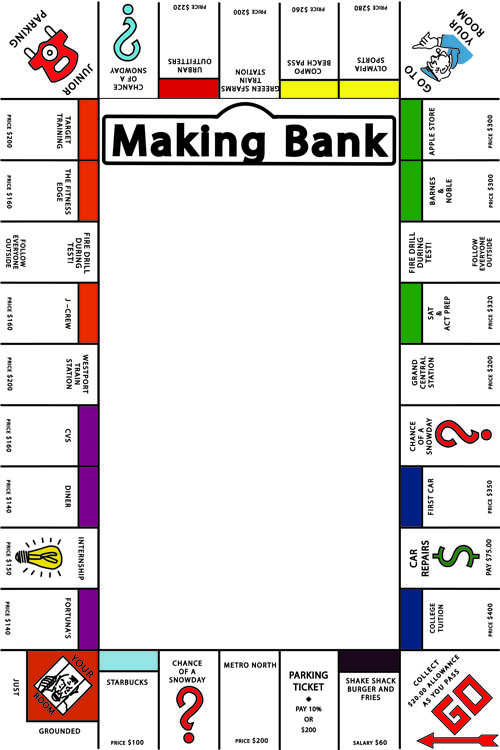Clothing, accessories, and gas.
These are all items that Leigha Grushkin ’13 buys with the money that she earns in her job as a cashier at Ace Hardware. With parents who only pay for her insurance, Grushkin is paying for more than most teens, and she’s not the only one at Staples. More students have taken matters in to their own hands and have jobs that serve as their main source of income.
One of the main reasons students have been seeking out jobs is to experience financial independence. Sydney Sussman ’15 said, “There are always those few times when I wish my parents gave me money for when I go out to eat or to buy clothes or makeup; however, I like the feeling that I can do certain things for myself without having to always rely on my parents.”
Cheryl Settos, parent of a sophomore, feels the same about students learning about financial independence. She said, “I think teenagers should earn their own money so they can really how learn to be independent and manage their own finances. They should start work early.”
Some students such as Carley Brockwell ’14 have done just what Settos suggests: started work early. Brockwell, whose parents own frozen yogurt store Froyo World, seized the opportunity to work in the family businesses. “I work there three to four times a week after school and on [weekdays],” Brockwell said. “I would work more, but every student needs time to get schoolwork done. I do enjoy doing it; I love having a job because [with the money I earn] I can buy clothes or I just save up for anything I decide I want.”
Brockwell’s enthusiasm for her job is not rare; Ben Rogers ’15 works as a ref at basketball games and agrees that working can be enjoyable as well. “I am getting exercise and having fun while getting paid. Reffing is totally worth it, and it isn’t really a large commitment because it’s four hours on a Saturday,” he said.
No matter how they are earning it, a common goal among working students is saving up enough money for a car. “Because I just got my license, I’ve been planning to use the money I get with my job to buy a car of my own,” Victoria Loiacono ’14, an employee at Sweet Frog, said. “It’s a good motivation for me to keep working in order to get the car that I want since I have to pay for it.” Grushkin ’13 shares the same goal as Loiacono. She said, “Right now I really need a new car, so I’m working towards that.”
Time is one factor that plays a role for students with jobs. Grushkin ’13 has a demanding job that serves as her source of revenue all year round. “It’s a huge time commitment, because not only do I have my weekly shifts Monday through Friday after school and all day Sunday, but I also try to be as available as I can be for the other cashiers there,” Grushkin ’13 said. “When we look for new cashiers, I tell them they need to have a flexible schedule.”
Steven Warshavsky ’16, who worked in a less time consuming job as a camp counselor over the summer, said, “It was worth it and I would love to do it again because it was a lot of fun and a good way to be active during my summer.”
Other students have allowances to earn money that receive money monthly or weekly from household tasks or favors for parents. Andrea Gallindo ’15, who receives her allowance weekly, said, “I have to do chores [for my allowance]. I wash the dishes, set the table, clean my room and babysit my brother.” But Gallindo would rather be financially independent. She said, “I’d rather make money for myself so that I don’t have to depend on my parents,” She said.
However, relying on parents is becoming increasingly common as the number of teens working decreases. The National Center for Education Statistics has found that from 1980 to 2010, the percentage of high school students 16 years or older with jobs went from 36 percent to 16 percent. Although a fairly large portion of students at Staples are employed through babysitting, retail jobs, or working at summer camps, many receive money solely from their parents and do not work.
Jenny Lupoff ’15 enjoys the perks of being financially dependent on her parents. “They never just put money on my debit card if my account balance is low; they give me some cash if I ask or I don’t have any left in my wallet,” Lupoff said. As Lupoff says, and many Staples students would agree with, “It’s nice that if I don’t have cash in my wallet at the moment they give me a little bit for whatever I need it for, like the movies or for dinner or something.”















































